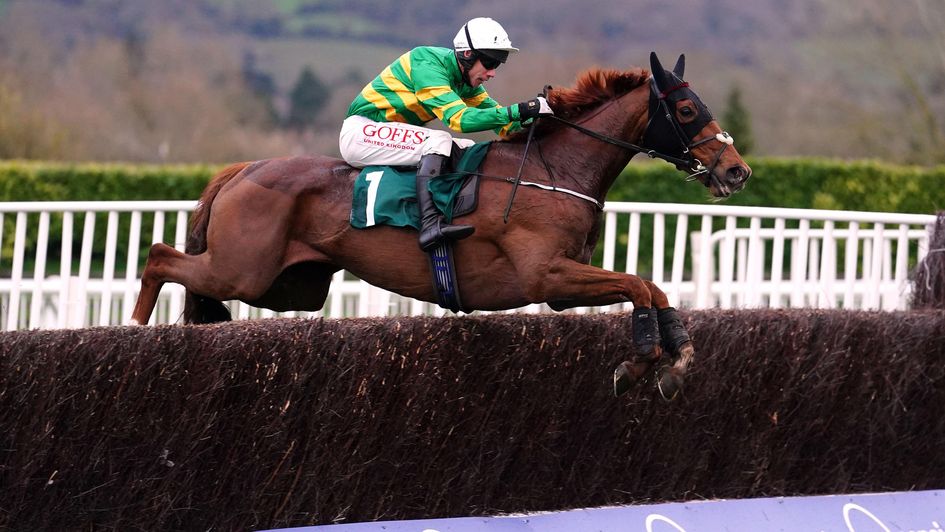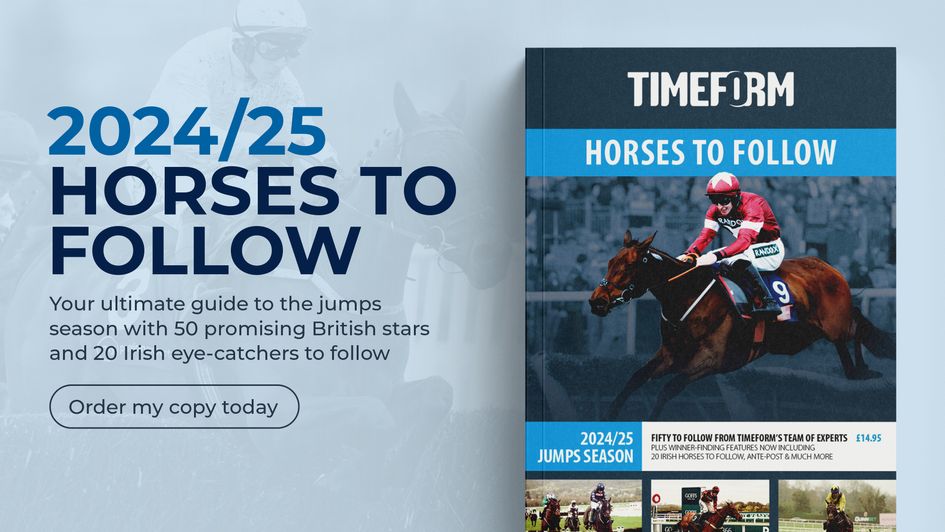The National Hunt Chase will become a limited handicap open to professional jockeys as one of six changes made to the Cheltenham Festival.
The contest will will have a ratings band of 0-145 and was one of the modifications announced on Thursday afternoon following a Jockey Club review into the four-day meeting, and following a period of consultation with participants, racegoers, racing fans, members of the media, sponsors and a wide range of industry stakeholders.
As had previously been reported, the Grade One Turners Novices’ Chase will be replaced by a limited novices’ handicap over the same distance.
The Glenfarclas Cross Country Chase also switches from being a conditions race to a limited handicap. Also, the penalty structure for the Ryanair Mares’ Novices' Hurdle has been removed meaning it is now a level-weights contest.
For the non-novice handicaps at the meeting, horses must run four times (chases) and five times (hurdles) to be eligible, up from three and four respectively, while winners of the Pertemps Qualifiers throughout the season will be guaranteed a run in the Final if they are in the weights proper at final declaration stage.
Prize-money over the four days is to increase by £115,000, taking the total on offer at the Festival to £4,930,000.
Ruby Walsh, the most successful jockey of all time at The Festival with 59 winners, was one of those consulted about the race programme changes and said: "All the changes are geared towards making the races more competitive. The aim is to attract as many of the best horses as possible to run at the Cheltenham Festival and for them to run in the right races.
“Cheltenham is the pinnacle of Jump Racing and these changes help to maintain that. Of course, there will be some people who think these changes go too far and there will be some who think they don’t go far enough. The important thing to remember is that those making these changes have done so in the best interests of Jump Racing and The Festival.”
Six key Cheltenham Festival changes
- The 2m 4f Turners (Golden Miller) Novices’ Chase will be replaced by a Grade 2 Limited Novice Handicap Chase over the same distance.
- The National Hunt Chase will become a Class 2 Novice Handicap Chase (0-145), with amateur rider restrictions for jockeys removed to allow professionals to take part.
- The Glenfarclas Cross Country Chase will be changed from a conditions race to a Limited Handicap.
- The race conditions for the Ryanair Mares’ Novices Hurdle will be changed to remove the penalty structure, resulting in a level weights contest.
- From 2023 any horse finishing in the first four of a qualifying race for the Pertemps Network Final Handicap Hurdle has been eligible for the race at The Festival. From 2025 the race conditions will be altered to provide a guaranteed run in the Pertemps Final for all winners of series qualifiers (provided they are within the weights at declaration stage).
- Currently horses must have run at least three times (chases) or four times (hurdles) to be eligible to run in non-novice handicaps at The Festival. From 2025, this will be increased to four chase and five hurdle runs.
Nicholls backs new-look Festival
Paul Nicholls was also supportive, saying: “On the whole these changes sound very sensible. Everybody has different opinions, and you cannot please everybody at the same time, but I think we have to try and make the racing as competitive as possible as that is what the Cheltenham Festival is all about.
“One thing I have been impressed with is the way Cheltenham Racecourse has approached the changes by saying we will look and see what effect they have in the years ahead and then maybe review again – it is all part of an ongoing process. As I have said before, anything which makes racing more competitive can only be a good thing.”
Ian Renton, The Jockey Club’s Managing Director of Cheltenham Racecourse said: “The teams behind our major festivals review the race programme on an annual basis and with so much data now available and having conducted one-to-one sessions with participants and other stakeholders, we have decided to make six key changes, all the while ensuring that the welfare of horse and jockey is paramount.
“As with any event of this size, it is never possible to make changes which are welcomed by everyone. However, we have prioritised listening to our racegoers to put them and their experiences at the heart of The Festival, with the ultimate goal of delivering something that not only meets but exceeds expectations.
“I would like to thank everyone who has contributed to this review process and shares our vision of long-term success for an event which is vital to our sport in so many ways.”
Pullin explains alterations
Explaining the reasons behind some of the changes to the race programme, Jon Pullin, The Jockey Club’s Head of Racing and Clerk of the Course at Cheltenham Racecourse, added: “For participants and racing fans The Festival is special because it pits the best horses against each other on the biggest stage of them all.
“We all want the most competitive races possible throughout the week and what the data and specific feedback was telling us was that we should take a more in-depth look at the programme we are providing.
“When we started this process we had five clear objectives that any changes we would make should adhere to, with the first being equine welfare, which will always be our number one priority.
“After that the changes needed to play their part in creating a race programme that attracts the best horses from the UK, Ireland and France and we also wanted to ensure that all races are as competitive as possible.
“Any changes we implement obviously have to benefit not only The Festival race programme but also have a positive impact on Jump Racing in general and, finally, we wanted to make sure that The Festival continues to innovate and evolve.
“The review was led by Richard Norris, The Jockey Club’s Group Racing Director, Ian Renton and myself and we have been very fortunate to be supported by the BHA (British Horseracing Authority), the Levy Board and other organisations in the gathering of data.
“We also spoke to more than 50 individuals as part of the process and more directly with participants, including leading owners, trainers and jockeys. It was important to give everyone an opportunity to state where The Festival currently stands for them and where they believe improvements could be made.
“Hopefully these changes will deliver against the objectives we set out to achieve and help ensure that racing fans get to see the best of the best racing against each other come next March.”
More from Sporting Life
- Racecards
- Fast results
- Full results and free video replays
- Horse racing news
- Horse racing tips
- Horse racing columnists
- Download our free iOS and Android app
- Football and other sports tips
- Podcasts and video content
Safer gambling
We are committed in our support of safer gambling. Recommended bets are advised to over-18s and we strongly encourage readers to wager only what they can afford to lose.
If you are concerned about your gambling, please call the National Gambling Helpline / GamCare on 0808 8020 133.
Further support and information can be found at begambleaware.org and gamblingtherapy.org.











